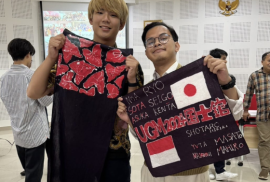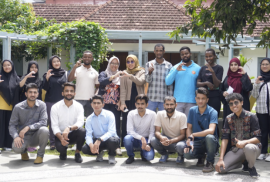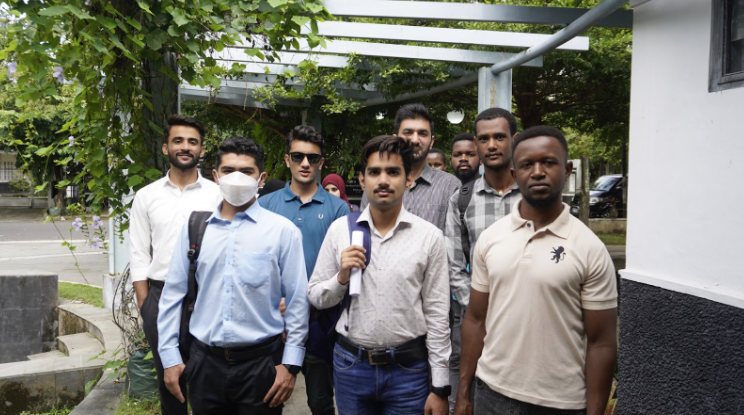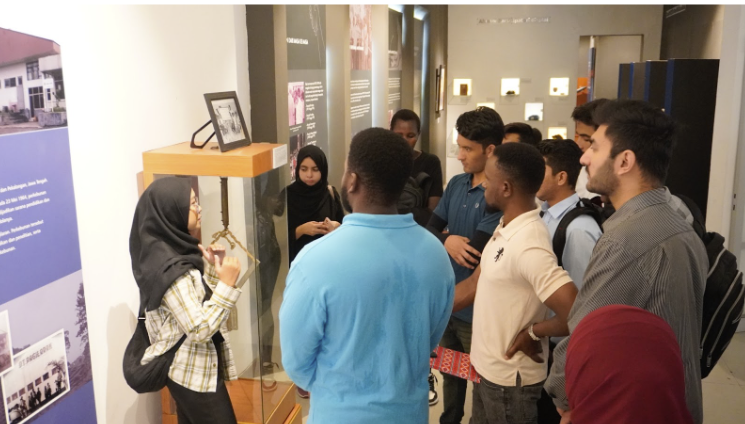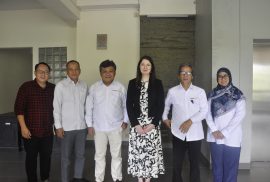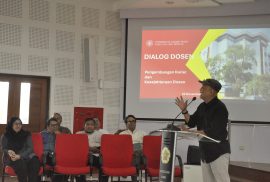Yogyakarta, 10/06/ 2025 – Amid the growing tide of global mobility and cultural exchange, the role of a tutor goes beyond simply teaching a language, it has evolved into that of an intercultural mediator, helping to strengthen mutual understanding across nations. Yohan Akbariantoro is one such tutor who embraces this role with dedication. A student from the 2022 cohort of the French Language and Literature Program at Universitas Gadjah Mada, Yohan joined the Indonesian Culture and Language Learning Service (INCULS) in 2023 and has since been actively involved in various Bahasa Indonesia for Speakers of Other Languages (BIPA) teaching programs, including Kokushikan University (2023 and 2024), Monash Global Immersion 2024, Development Studies Immersion Program (DSIP) 2024, and the Developing Countries Partnership Scholarship (KNB) 2023–2024.
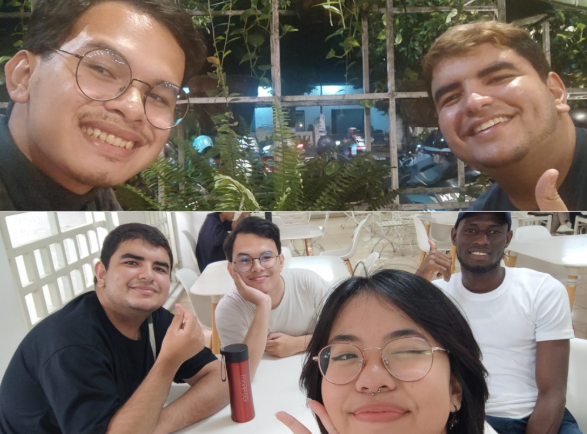
Among all the programs he has participated in, KNB left the most lasting impression on Yohan. His connection with student such as Mohammad Albohisi from the 2023–2024 KNB cohort extended beyond the classroom. Their communication continues to this day, demonstrating how language learning can foster meaningful and lasting interpersonal networks. This experience also illustrates the vital role language education plays in cultivating global understanding.
At first, Yohan lacked confidence due to his limited prior experience in BIPA instruction. He therefore chose a student-centered approach, sharing cultural trivia about Indonesia—such as interesting places, local customs, and culinary highlights. He often initiated conversations about students’ daily lives, classroom challenges, or plans during their stay in Indonesia. This approach opened up more relaxed and personal discussions, helping students feel at ease. When learners encountered difficulties—for instance, unfamiliar vocabulary—Yohan was quick to collaborate and explore solutions with them, such as using dictionaries together.
Through this teaching process, Yohan also learned how to navigate and challenge stereotypes. During his early interactions, he admitted to some initial uncertainty about the students’ cultural backgrounds. However, as relationships developed, these assumptions gradually faded. He worked to maintain open and respectful interactions. When confronted with differing social norms, such as views on alcohol consumption, he emphasized the importance of contextual awareness and appropriateness in time and place. He also actively avoided bias by treating each student with equal respect, regardless of origin.
Teaching students from diverse programs has enriched Yohan’s understanding of learner dynamics. Male students from Kokushikan University in 2023 tended to be highly academic, while those in the following year’s cohort were more exploratory and open. KNB students were generally very ambitious due to their academic degree pursuits. Meanwhile, female students from the DSIP program were more focused on classroom content, making off-topic interactions more limited. Each program brought its own unique rhythm, and Yohan adapted his teaching style to suit each one’s goals. He also favored the use of informal language in class to create a more relaxed learning atmosphere.
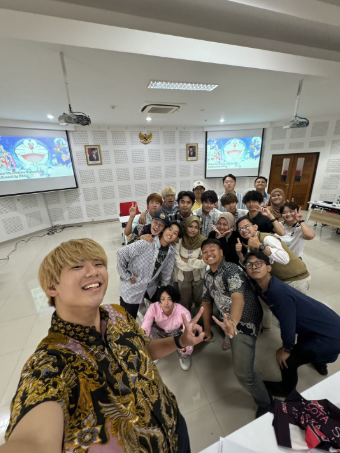
Beyond the classroom, Yohan often took students to cultural sites such as Sonobudoyo Museum, Malioboro, Wisdom Park, and Mirota Kampus. These excursions aimed to deepen their real-world understanding of Indonesian culture. He also regularly consulted with lecturers to gain further insight into guiding students effectively.
Nevertheless, the tutoring journey has not been without its challenges. Maintaining balanced and dynamic interactions was sometimes difficult, particularly when students viewed tutoring sessions as mere formalities. Teaching grammar also required precision; Yohan admitted that he initially struggled to explain affixes and chose instead to focus on one concept at a time to make the material easier to digest. Language barriers also emerged—especially when students were not fluent in English or still learning Indonesian. Additionally, Yohan learned to remain professional despite personal challenges. Interestingly, the tutor role sometimes extended to that of a confidant, as students often felt more comfortable sharing personal stories with a peer.
For Yohan, being a tutor is not about being the primary teacher but rather a companion in the learning process. There is no obligation to “complete” the students’ learning, but rather to assist them through challenges and relay those to the main instructors as part of ongoing evaluation. A close relationship between tutors and lecturers is essential, as students often feel more comfortable expressing concerns to tutors. Yohan also believes that additional training should be provided for both tutors and instructors, so both understand their integral roles within the overall educational program.
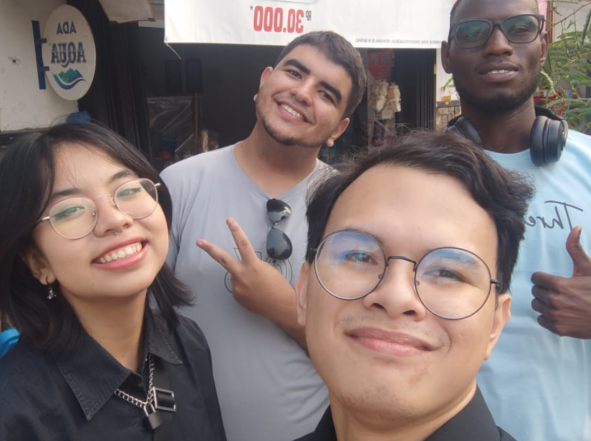
Being a tutor has had a profoundly positive impact on Yohan. He has gained a greater appreciation for a cosmopolitan environment filled with diverse perspectives and backgrounds. The experience helped him become more open-minded and reduced tendencies toward stereotyping. His role also enhanced his intercultural communication skills and broadened his knowledge of other countries. It became a valuable opportunity to actively refine his language proficiency.
Looking ahead, Yohan hopes INCULS will continue to improve its teaching environment both in terms of infrastructure and operational support. He recommends that stronger bonds be developed between instructors and tutors to foster more harmonious collaboration. Moreover, he suggests that the faculty should no longer rely heavily on part-time personnel for heavy administrative tasks, as these duties fall outside the tutor’s core responsibilities.
In closing his reflection, Yohan emphasized that despite all the challenges, INCULS remains a warm, vibrant, and inclusive institution for everyone involved. He likens instructors and tutors to the face of INCULS, coordinators as its head, and administrative staff as the hands, feet, and lifeblood that keep INCULS moving forward. Through the dedication of tutors like Yohan, INCULS continues to build intercultural bridges that enrich global understanding.
[INCULS, Thareeq Arkan Falakh]

